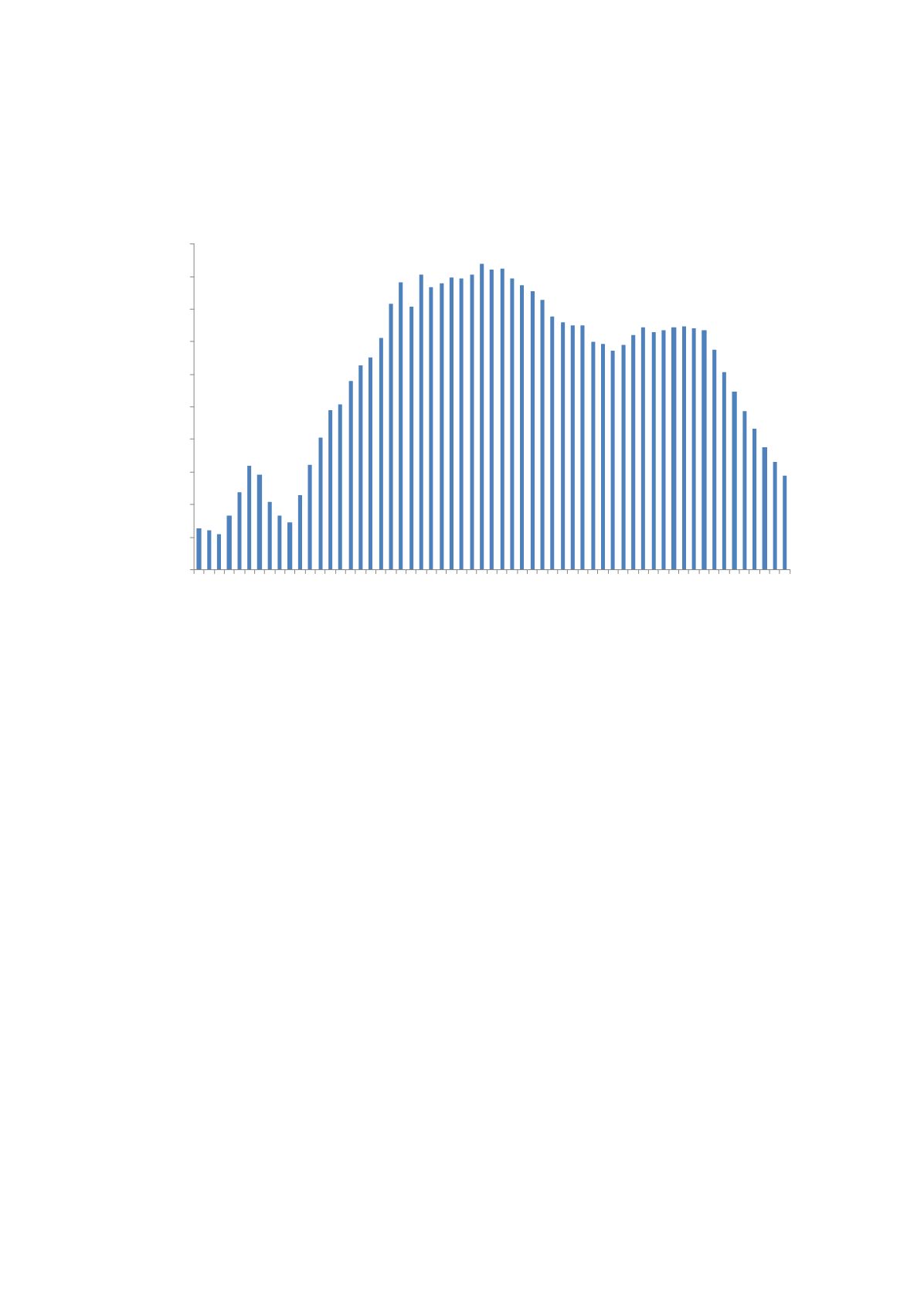
91
production in Egypt since the 1960s but are now mature and production has been declining since reaching a peak of
912,000 b/d in 1993. The emergence of the Western Desert as a key oil producing region since 2000 has managed to
offset a large part of the decline from the Gulf of Suez. Key oil producers in the Western Desert are the Khalda Area and
East Bahariya, both operated by Apache. New finds in the Mediterranean deepwater offshore and in mature productive
areas in the Gulf of Suez and Nile Delta may offer Egypt sustained oil resources in the future.
Egypt Liquids Production by Region 1965-2023
0
100
200
300
400
500
600
700
800
900
1000
1965
1967
1969
1971
1973
1975
1977
1979
1981
1983
1985
1987
1989
1991
1993
1995
1997
1999
2001
2003
2005
2007
2009
2011
2013
2015
2017
2019
2021
2023
'000 b/d
Source: Wood Mackenzie (January 2014), BP Statistical Review of World Energy (June 2014).
EGPC owns and operates much of the country’s refining capacity and is also the state entity charged with managing
upstream activities including infrastructure, licensing and production. In addition to the EGPC and the Egyptian Mineral
Resource Authority (“
EMRA
”), the energy sector is divided among three holding companies: the Egyptian Natural Gas
Holding Company (“
EGAS
”), the Egyptian Petrochemicals Holding Company (“
ECHEM
”) and Ganoub El Wadi
Petroleum Holding Company (“
GANOPE
”). EGAS is responsible for promoting the gas sector, establishing a
development strategy and distributing tenders. ECHEM is responsible for the implementation of the National
Petrochemicals Master Plan and for developing a competitive portfolio of successful petrochemical businesses.
GANOPE is responsible for managing and supervising petroleum activities and supports international oil companies by
providing technical expertise and data. International and foreign national oil companies, including Apache, British
Petroleum and Shell E&P, play a significant role in Egypt’s upstream sector, and generally operate on the basis of
production sharing contracts (“
PSCs
”) entered into with EGPC. See “
The Group’s business—The Group’s operations—
Egypt—fiscal regimes.
”
In its effort to combat falling liquids production, Egypt has held a significant number of exploration bid rounds in recent
years. In addition to the more familiar Western Desert, Gulf of Suez and Nile Delta areas, blocks have also been offered
in lesser known frontier regions like the Red Sea and Upper Egypt. Bid rounds in Egypt are usually well received by
IOCs, although the response to Red Sea and Upper Egypt rounds has been low key so far, with interest limited to some
smaller companies. Ratification of awards is often subject to lengthy delays since awards are approved by the Egyptian
parliament and become Acts of Egyptian law. During this interim period (between award and ratification) no work can
be undertaken on the acreage. The Egyptian authorities point to the contract stability offered by the process and
compares it with other areas of North Africa where contract sanctity has been less well respected.
In the face of a weakening economy and political upheaval (see “
Risk factors—Risks relating to the jurisdictions in
which the Group operates—The Group’s operations in Egypt may be disrupted by political and economic
developments
”), one of Egypt’s energy challenges is to satisfy increasing domestic demand for oil in the midst of falling
domestic production. Domestic oil consumption has grown by almost 40% over the last decade, from 550,000 bbl/d in
2000 to 757,000 bbl/d in 2013. A small volume of refined petroleum product imports are used to meet domestic demand.
Domestic consumption exceeds production, making Egypt a net oil importer.
Gas


